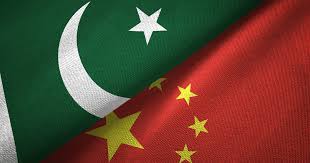Islamabad, Apr, 27, 2025: Pakistan has officially appealed for an extra 10 billion yuan ($1.4 billion) from China under its ongoing currency swap arrangement, confirmed Finance Minister Muhammad Aurangzeb.
Addressing media after his week-long trip to Washington for the IMF and World Bank Spring sessions, Aurangzeb remained hopeful that the current deal with the IMF would be the country’s final program, highlighting that reforms were being implemented to achieve lasting economic independence.
“The government is focused on restructuring the public sector and reforming the pension system,” the finance minister explained.
He also mentioned that recent policy measures had stabilized the economy and that steps were being taken to enhance private sector engagement across multiple industries.
Speaking to Reuters during the Washington meetings, Aurangzeb revealed that Pakistan had requested to expand its 30 billion yuan swap line to 40 billion yuan.
The move is part of a broader strategy to strengthen foreign reserves and widen financing channels.
“In our view, reaching 40 billion renminbi would position us well… the formal request has been submitted,” he stated.
China’s central bank has been growing its currency swap agreements with developing nations like Argentina and Sri Lanka, aiming to internationalize the renminbi in global commerce and finance.
In addition, Pakistan is moving forward with plans to issue its first Panda bond — a debt security denominated in yuan to be floated in China’s domestic bond market.
Aurangzeb noted that talks with the Asian Infrastructure Investment Bank (AIIB) and the Asian Development Bank (ADB) regarding credit guarantees for the bond have been “positive and forward-looking.”
“We are eager to broaden our financing sources and have made considerable progress. We expect to conduct our initial issuance within this calendar year,” he added.
Meanwhile, the finance minister shared his optimism that the IMF executive board would approve, by early May, the Staff Level Agreement (SLA) for a new $1.3 billion programme focused on climate resilience, alongside the first review of the ongoing $7 billion bailout secured in 2024.
Approval would pave the way for a $1 billion disbursement, vital for sustaining Pakistan’s macroeconomic balance.
Read More: Pakistan Requests Debt Rollover, Currency Swap Increase from China
On regional matters, when questioned about the economic effects of rising tensions with India — following a recent tragic incident that claimed 26 lives at a tourist location — Aurangzeb admitted the tensions were “unfavorable for economic activity.”
Trade between Pakistan and India had already plummeted, with total bilateral trade valued at just $1.2 billion last year.
